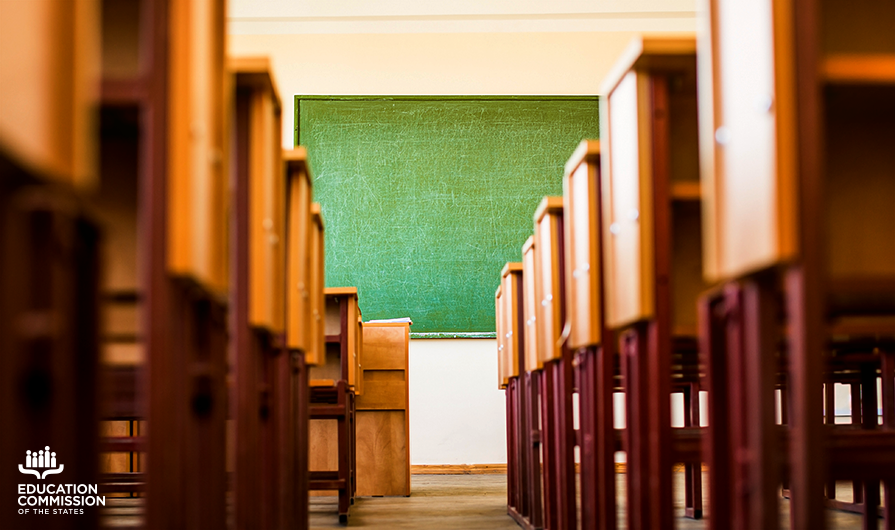Schools and districts find themselves in an increasingly complex situation as the school year starts. The debate over whether to reopen schools — and how — has continued throughout the summer garnering national attention. COVID-19 outbreaks in schools that opened their doors have only amplified the conversation. While school personnel, administrators, parents and students are voicing health and safety concerns, some state and federal leaders push for in-person instruction — citing child development concerns and economic benefits. Combined with dire economic forecasts and likely budget shortfalls, schools, districts and state leaders are balancing conflicting priorities.
Because of the push to reopen schools for in-person instruction, teachers’ unions have raised concerns. There is currently a lawsuit between the Florida Education Association and the governor over reopening, a statewide teachers union urged the New Jersey governor to allow remote instruction and the California Federation of Teachers pushed back against the governor’s plan to allow for in-person instruction waivers for elementary schools. The nation’s second-largest teachers union, the American Federation of Teachers, recently declared their support for safety strikes as a last resort in the event of a school reopening prior to meeting certain public health metrics. Unions are continuing to play a key role in reopening discussions at both the state and local levels, and some states — California, Minnesota, New York and Oregon — have already adopted public health metrics that must be met in order to reopen schools or that trigger a return to virtual instruction.
The growing wave of teacher activism is not a new phenomenon. Prior to the COVID-19 pandemic, teachers advocated for higher teacher pay, better benefits and improved working conditions, some of which remain key tenants of the reopening discussion. In just over a year between February 2018 and May 2019, there were at least 30 teacher protest actions nationwide.
With collective bargaining and strikes back in the national spotlight, our 50-State Comparison of teacher employment contract policies provides a national overview of state collective bargaining laws. Based on a review of state policy, at least 46 states explicitly allow collective bargaining for public school teachers, while 36 states explicitly prohibit teacher strikes in state policy or case law.

The 50-State Comparison also includes information on what is allowed, per statute, to be negotiated as a part of local collective bargaining. Although prohibitions on strikes have not prevented other forms of advocacy and protest actions, these collective bargaining provisions could provide a significant framework for state and local debates on reopening schools.
Teacher activism remains a powerful force in education policy and continues to play a role in reopening discussions with teachers advocating for safer working conditions as schools and districts debate a return to in-person instruction. With union support, protest actions could influence the education policy landscape over the course of the next school year. State policymakers can support efforts to provide personal protective equipment, utilize public health data in reopening decisions and continue to involve teachers in the reopening discussion to address the concerns of teachers, students and communities.










